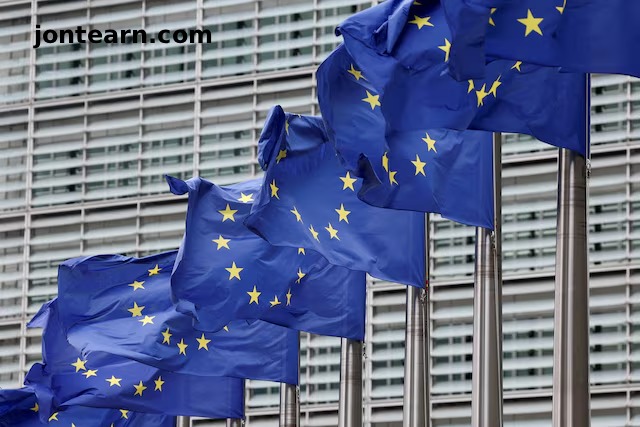
Brussels, November 12, 2025 — The European Union is stepping up its efforts to fight disinformation and hybrid threats by leveraging the reach of Big Tech platforms and social media influencers, the European Commission announced on Wednesday. The new strategy, known as the European Democracy Shield, aims to safeguard elections, strengthen democratic processes, and counter foreign interference in EU member states.
EU Targets Online Platforms for Greater Responsibility
The strategy builds on existing obligations under the EU Digital Services Act (DSA), in effect since 2022, which already requires major platforms to tackle illegal and harmful content. Companies including Alphabet’s Google (GOOGL.O), Microsoft (MSFT.O), Meta Platforms (META.O), TikTok, and Elon Musk’s X are now expected to go further in identifying and mitigating threats to democracy.
A DSA incidents and crisis protocol will be established to facilitate swift coordination between authorities, enabling a rapid response to large-scale disinformation operations.
“The Democracy Shield connects the dots, making sure Europe’s tools and actors work together effectively in defence of our shared values. The challenge is clear and let us make no mistake, the stakes are indeed very high,” said EU Justice Commissioner Michael McGrath at a Brussels news conference.
Tackling AI-Generated and Manipulated Content
The EU will focus particularly on AI-generated and manipulated content, which has become increasingly sophisticated and capable of influencing public opinion. Signatories to a voluntary Code of Conduct on disinformation, including Google, Microsoft, Meta, and TikTok, may be required to intensify efforts to detect, label, and remove manipulated media from their platforms.
By formalizing these responsibilities, the EU aims to ensure that online platforms actively protect democratic debate while maintaining transparency in content moderation.
Influencers as a Force for Democracy
Recognizing the growing impact of social media personalities on public opinion, the EU plans to establish a voluntary network of influencers. This network will promote awareness of EU rules regarding disinformation and encourage civic engagement among online audiences.
The move highlights the Commission’s broader approach of mobilizing trusted public figures to disseminate factual information, particularly during sensitive periods such as elections or political campaigns.
European Centre for Democratic Resilience
To coordinate these initiatives, the European Centre for Democratic Resilience has been created. The center will pool expertise and resources across EU member states, facilitate information sharing, and provide technical support for identifying and countering disinformation campaigns.
By centralizing efforts, the Commission aims to ensure timely, unified responses to hybrid threats and reinforce Europe’s resilience against attempts to undermine democratic institutions.
Outlook
The Democracy Shield reflects the EU’s commitment to protecting the integrity of its democratic processes in an era of rapidly evolving digital threats. Analysts say that combining platform accountability, AI content monitoring, and influencer engagement could provide a comprehensive approach to countering disinformation at scale.
As elections and political campaigns increasingly migrate online, the effectiveness of this initiative will likely influence not only EU policy but also global strategies for digital governance and election security.


Leave a Reply